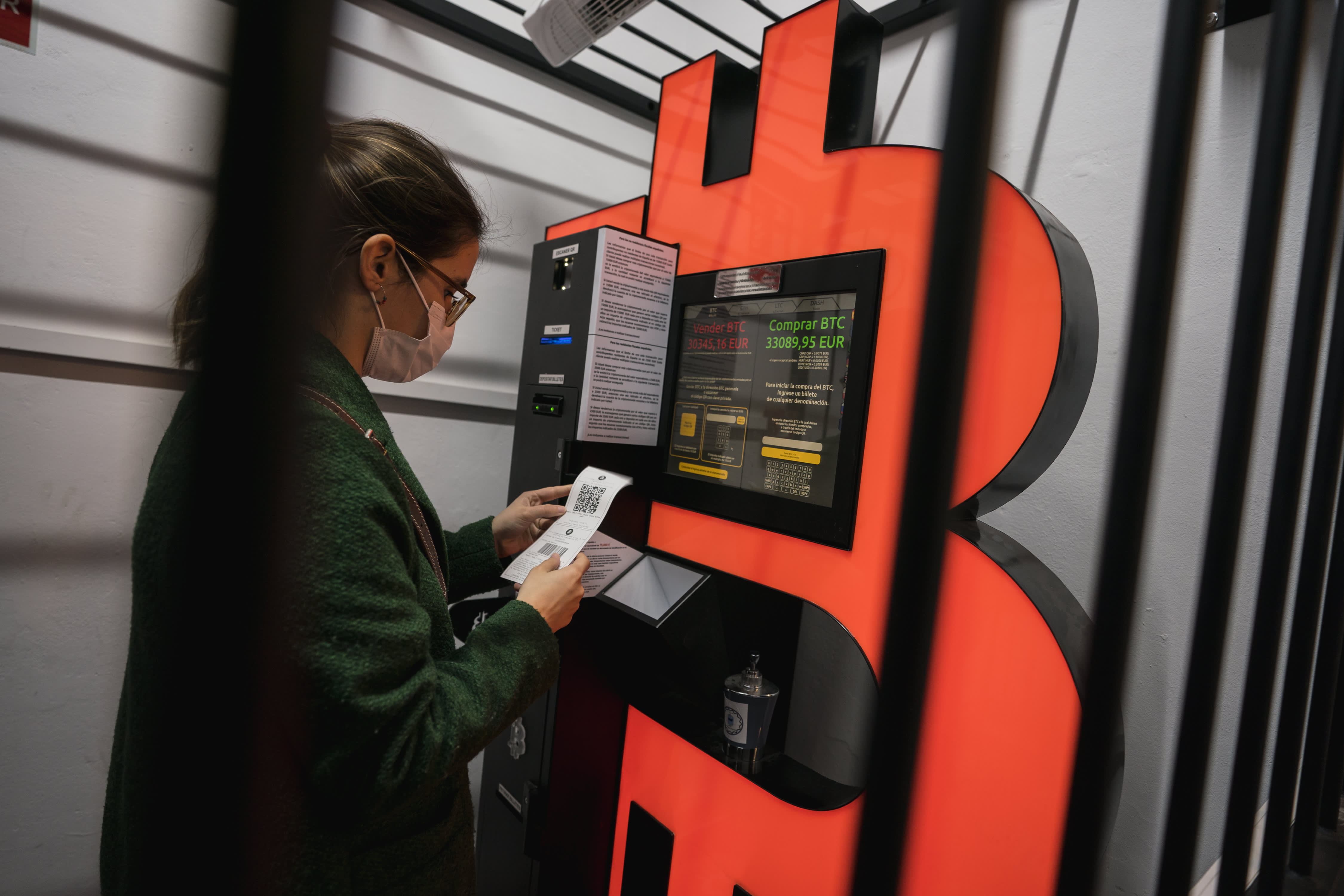
A woman uses a Bitcoin ATM machine placed within a safety cage on January 29, 2021 in Barcelona, Spain.
Cesc Maymo | Getty Images
The price of bitcoin fell Tuesday after breaking through $52,000 late Monday, reaching its highest level since May.
The price action comes on the day El Salvador is set to adopt the largest cryptocurrency by market cap as legal tender, becoming the first country to do so. Bitcoin is now down about %16 and last traded at $43,228.11.
The market action is unsurprising, according to Leah Wald, CEO at Valkryie Investments, who said the news was largely priced into the market “a while ago.”
“When this move was first announced, it didn’t have nearly as big of an impact on price as some may have expected it might, possibly because El Salvador’s population is less than New York City’s, but also because the announcement was light on details and people were on the fence about how this was going to be implemented,” she said, noting that much of El Salvador lives in poverty and doesn’t have internet or smartphone access required to participate in the bitcoin network. “Transaction fees, processing times, and other hurdles also make this feel more like a beta test rather than a solution to many of the problems plaguing the country’s poor,” she added.
As part of the new law, businesses will be required to accept bitcoin for goods and services, though merchants who aren’t technologically able to accept bitcoin will be exempt. The government has installed 200 bitcoin ATMs around El Salvador.
The country has bought 400 bitcoins worth about $20 million and is preloading government-run bitcoin wallets with $30 worth of bitcoin for Salvadorans who register.
According to the bitcoin thread, which 3.3 million members, people are coordinating to individually buy $30 worth of bitcoin in their local fiat currencies to commemorate El Salvador’s new law, at 3:00 p.m. EST, when they say the law is scheduled to take effect. They maintain the plan is meant to be a gesture of support and encouragement for those on the fence about buying bitcoin, rather than a pump. The initiative is making its way across Twitter as well.
“What is most worth looking out for is whether or not neighboring countries in Latin America, or those elsewhere around the world, begin to adopt bitcoin as their national currency as well,” Wald said. “Should this occur, that is when we could see a parabolic move higher, as the momentum gained from many millions more people having instant access to crypto should result in more adoption, more HODLing, and higher prices.”
Bitcoin advocates have long held there’s a strong case for Latin American markets using the cryptocurrency as a medium of exchange, for remittances and even for central banks that experience high currency depreciation.
On Monday Panamanian politician Gabriel Silva introduced the “Crypto Law,” which “seeks to make Panama a country compatible with the blockchain, crypto assets and the internet,” he said on Twitter. “This has the potential to create thousands of jobs, attract investment and make the government transparent,” he added.




